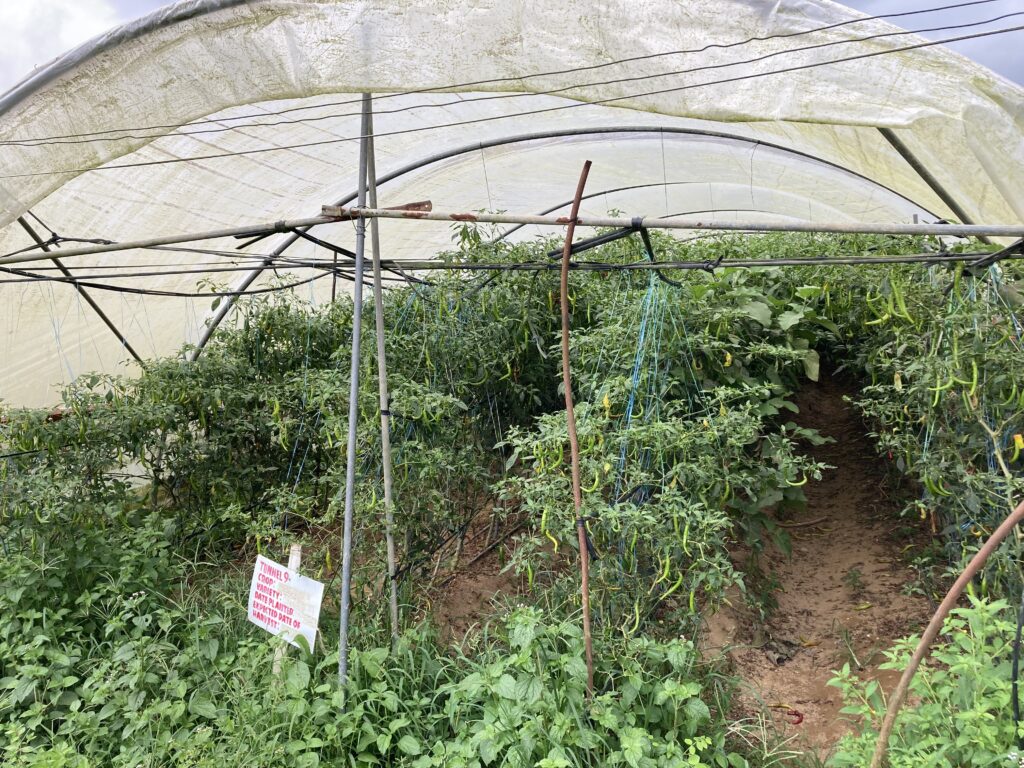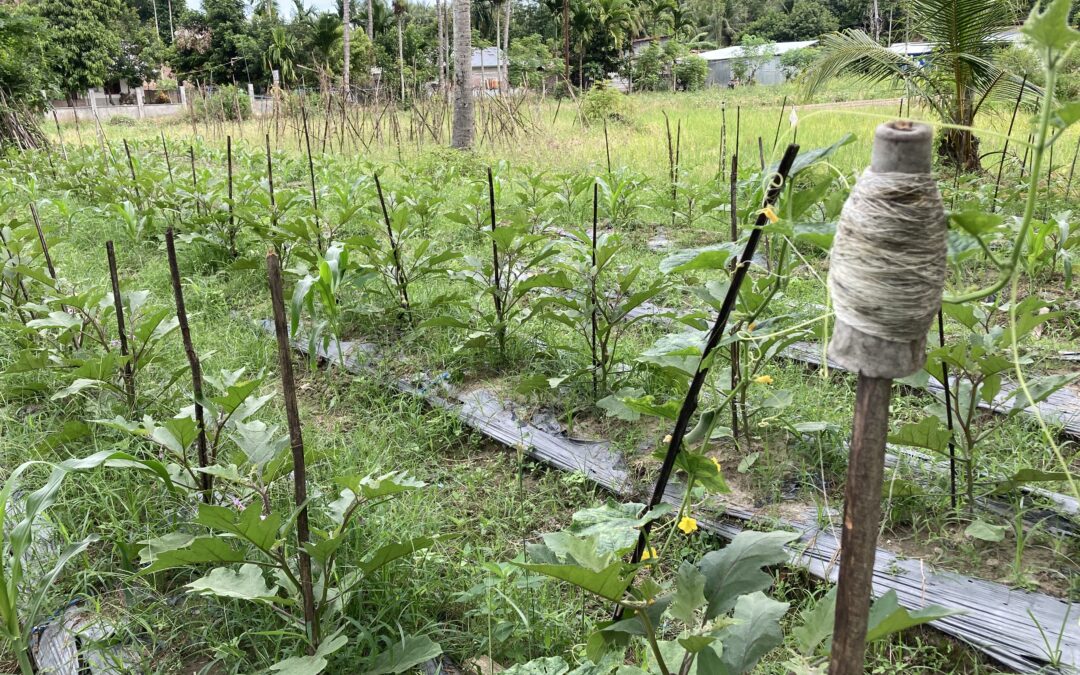Contributed by Dr. Julie Delforce, Principal Consultant, Alinea Asia-Pacific – with thanks to several colleagues for inputs and suggestions. Pictured above, a Women’s Group Vegetable Farm in Aceh province of Indonesia.
As this year’s World Food Day dawns, Australians are contemplating the outcome of the country’s weekend referendum on establishing an Aboriginal and Torres Strait Islander Voice to Parliament. Alinea acknowledges the Traditional Custodians of the lands on which we work, and pays respects to Elders both past and present. We have much to learn from traditional Indigenous management of land and other natural resources.
Two years ago, the UN Food Systems Summit aimed to focus global attention on the complex and interconnected systems through which food is produced, aggregated, processed, distributed, consumed, and disposed of. Three months ago, leaders and other key actors reconvened to take stock. According to UN Secretary General Antonio Guterres, “there is no shortage of ambition … [but] much more to be done.”
The effects of climate change are becoming all too evident, while food and fertiliser availability and prices are at the mercy of shocks such as Russia’s invasion of Ukraine and national trade policies. These conditions further hinder recovery from the massive challenges brought on by the COVID-19 pandemic.
Reaching zero hunger
Worldwide, 258 million people faced acute food insecurity in 2022 – 34 per cent more than in 2021. The SDG2 target of zero hunger by 2030 seems increasingly unattainable.
Around two-thirds of the world’s poorest rely on agriculture for their livelihoods – likely farming small plots or labouring for others. Despite limited resources, a third of the world’s food is grown on farms smaller than two hectares.
The Alinea Asia-Pacific team meets with many small-scale farmers through our research, evaluation, and design consultancies. With worlds far removed from the global summits in New York or Rome, they speak on similar themes. Their realities include changing temperature and rainfall patterns, more frequent and severe weather events, and difficulties accessing and paying for farm inputs and household needs.
However, farming communities show remarkable resilience.
In Aceh province of Indonesia, rural women still participate in farming groups set up after the 2004 tsunami, where they share tips on vegetable production and collaborate for marketing, as well as reinforce valuable social ties.
Vegetable growers in Leyte in the Philippines are adopting and adapting protective structures to their local contexts and conditions to shield crops from frequent deluges – and reusing what they can to rebuild after typhoons.

Protected cropping in Cabintan, Leyte, Philippines. Credit: Kate Angus, Alinea International
Small-scale farmers and entrepreneurs in Solomon Islands are taking to Facebook to identify and manage market opportunities.
Many rural dwellers across the Pacific are reinvesting earnings and remittances from seasonal work in Australia and New Zealand to expand their farmland or introduce new technologies or crops.
Alinea teams witness these kinds of positive impacts for targeted communities and sectors, as well as important lessons with the potential to expand future reach and effectiveness.
Achieving systems-level impacts
Ultimately though, impacts at the level of agri-food systems will be limited without greater funding, multi-stakeholder collaboration, integrated multi-disciplinary and system-wide approaches, and evidence-based policymaking at national and international levels. This ask is big.
In the meantime, a few clear areas of opportunity stand out that could help improve farmers’ lives while generating positive environmental and/or nutritional outcomes.
“Carbon farming,” already underway in Timor-Leste and Solomon Islands, incentivises farmers to plant or nurture trees rather than cut them down. For these schemes to reach their full potential, governments need to set up enabling policies, regulatory frameworks, and verification processes that prioritise existing local customs and knowledge and take account of international best practices. Alinea is helping to do this in Timor-Leste.
Greater use could also be made of nature-based solutions (NbS) to restore ecosystems, shift agricultural practices toward more sustainable production systems, and build sustainable livelihoods. We are currently reviewing key Australian investments in NbS across the Indo-Pacific, including Climate Resilient by Nature, ReefCloud, and the Pacific Blue Carbon Program, to inform and shape the next phase of Australia’s support in this sector.
Global agricultural research efforts have long focused on the main staples of wheat, maize, and rice. However, there is now increasing recognition that “neglected and underutilised crops” require more attention. These can contribute to both biodiversity and nutritional diversity, and tend to be better suited to their local environments than the introduced monoculture staples.
Listening to lived experiences
This brings us back to Traditional Knowledge. Local communities are fantastic holders and keepers of wisdom. They understand how to cultivate, gather, use, and process “neglected” plants that grew locally for generations. They have been managing their environments independent of global scientific reports and aspirational UN meetings. They are well aware that sea levels are rising, familiar seasonal patterns are getting less reliable, and tropical storms are increasing in frequency and severity – and they are doing what they can to adapt to these new realities. Efforts are now underway to better integrate scientific and local knowledge in regional assessments and strategies.
Alinea is a firm believer in listening to local voices, particularly those often marginalised from decision making. There is no denying the potential of modern science and technology to help improve livelihoods, environment, and nutrition for smallholder farming households. However, the “solutions” we can suggest will be more relevant and effective if we first listen to the wisdom and lived experiences of those we work to support.

